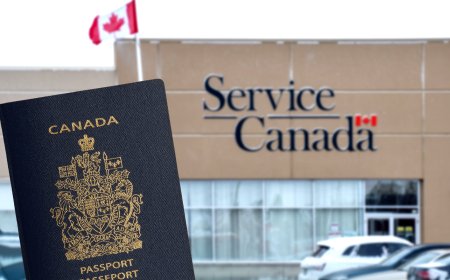IRCC Application Backlog Hits New High: Permanent & Temporary Residence
IRCC's application backlog reaches 1,078,300 as of August 2024, with increases in PR, temporary residence, and citizenship delays. Learn about IRCC's reduction plans.

Overview of the Backlog Increase
As of August 31, 2024, the Immigration, Refugees, and Citizenship Canada (IRCC) application backlog has reached a significant milestone, standing at 1,078,300 pending applications. This marks a 7.6% increase from July, with IRCC’s backlog continuing to surpass one million applications for the second consecutive month. Of the total 2,420,800 applications, 1,342,500 currently remain within IRCC’s established service standards, leaving 44.5% classified as backlog.
Understanding the Backlog Definition
An application is considered part of the IRCC backlog if it has not been processed within the department’s published service standards. These standards, which set processing timelines based on the type and nature of each application, serve as a benchmark for expected processing times.
- Express Entry: Aims for processing within six months.
- Study Permits: Typically completed within 60 days.
IRCC aims to process 80% of all applications within these service standards, while the remaining 20% may require additional processing time due to complexity or specific circumstances.
Detailed Backlog Statistics by Application Type
Permanent Residence Applications
As of the end of August, 805,600 applications were in inventory for permanent residence pathways, including:
- Express Entry and Provincial Nominee Program (PNP) streams.
- Family sponsorships for spouses, partners, and children.
From this total, 37% (approximately 300,800 applications) are classified as backlog:
- Express Entry: 16% backlog, slightly above the 15% projection.
- PNP: 22%, exceeding the 20% target.
- Spouse, Partner, and Children Sponsorships: At 14%, slightly under the projected 15% backlog threshold.
Temporary Residence Applications
Temporary residence applications saw a noticeable increase in backlog, rising from 49% in July to 53% in August. This equates to 738,900 of 1,386,000 applications currently in backlog, including:
- Temporary Resident Visas (TRVs): 71%, well above the 43% projection.
- Study Permits: 32% in backlog.
- Work Permits: 47% in backlog.
Citizenship Applications
Citizenship remains the area with the lowest backlog levels. 38,600 of 229,200 citizenship applications are in backlog, maintaining a 17% rate, consistent with July's figures and within expected levels.
IRCC’s Approach to Reducing the Backlog
To address the backlog, IRCC has introduced several strategic measures:
- Enhanced Online Services: Expanded digital portals for application submission and status tracking.
- Virtual Citizenship Ceremonies: Reducing in-person requirements and facilitating faster processing.
- Resource Allocation Adjustments: Prioritizing essential worker applications and reassigning staff to high-demand areas.
Additionally, IRCC is exploring measures to decrease temporary resident numbers by introducing a “soft cap” on these applications, aiming to limit the intake by 5% from current levels.
By implementing these strategies, IRCC aims to streamline the application process, reduce the backlog to manageable levels, and ensure timely processing for applicants across all pathways.
What's Your Reaction?
 Like
0
Like
0
 Dislike
0
Dislike
0
 Love
0
Love
0
 Funny
0
Funny
0
 Angry
0
Angry
0
 Sad
0
Sad
0
 Wow
0
Wow
0






































































